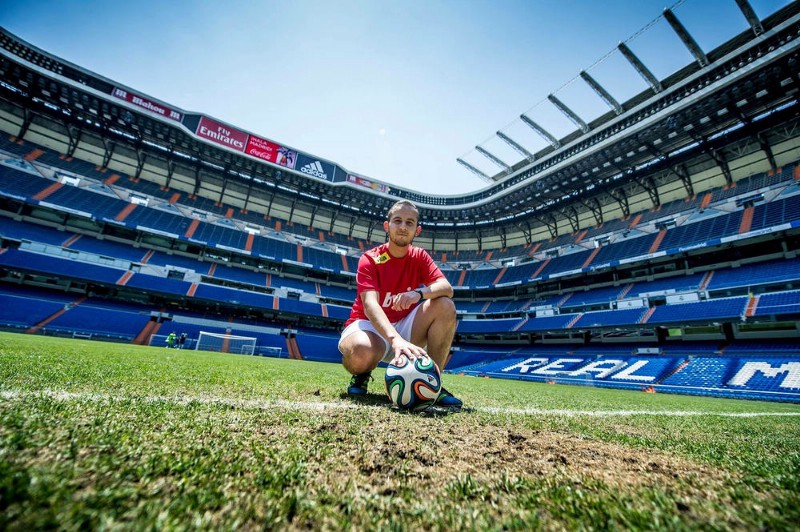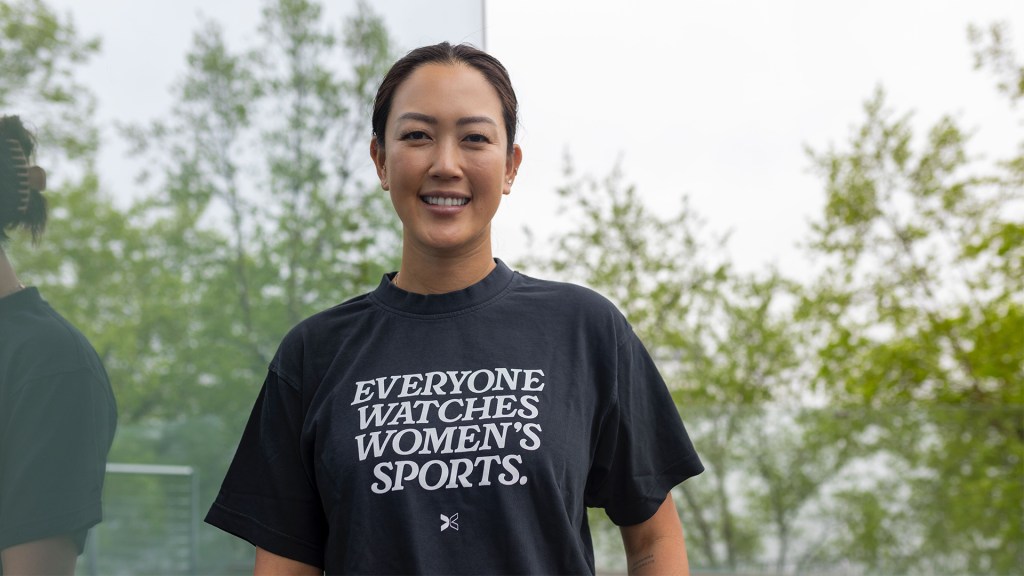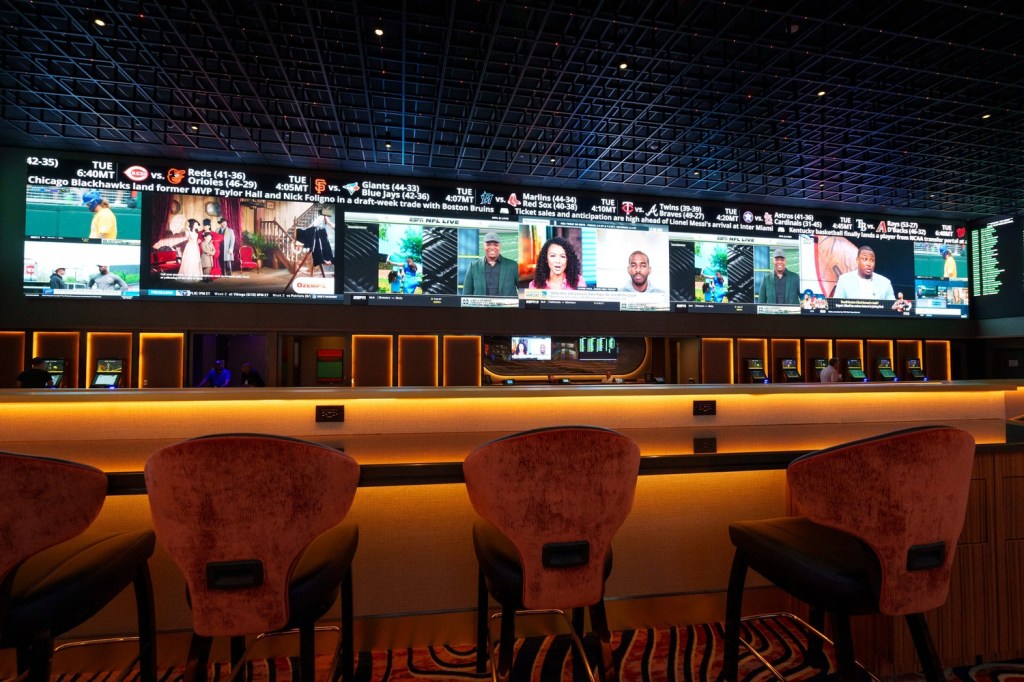By: Joe Barca, @BarkyCat

Front Office Sports is proud to have sat down with Adam Bader, former Social Media Manager for Real Madrid C.F. and creator of RealmadridTalk.com. Adam took the path less traveled in order to make his blog one of the most popular Real Madrid C.F. blogs on the internet. He was gracious enough to offer up his time and insight.
How did you break into the industry?
My dad was a football player and I wanted to become a football player as well. I started playing for a local club. Things were going well, but I had to choose between school, football, and work. So, I chose work and my studies. I thought, ‘Okay, I need to do something with football.’ I figured being a journalist would be a good experience. So I started a football blog about Real Madrid, which was called Realmadrid Talk. It became one of the most popular Real Madrid blogs on the internet. Later, I sold the blog to a startup called OleOle, which was like Facebook for football fans. That led me to Realmadrid TV and then Real Madrid. That’s how I really got started. It’s all because of my blog.
What set you and your blog apart?
I think I did the opposite of what everyone else would do in that situation, which is going and getting a journalism degree. I followed that by working for a newspaper and to try to get to where I wanted to go. It depends on the person, but my end goal was to work for Real Madrid. It was my dream to work there, because I’m a Real Madrid fan. My initial dream was to play there! But since that wasn’t possible I knew the next best thing was working there. I was born in Libya and I couldn’t study what I wanted at school. It’s not a good place to grow up. I had to set myself apart by taking another path, which was starting a blog. It was either 2006 or 2007. I had to do something other people were not. And do it better than everyone else.
I remember I worked hard on the blog. I blogged about every day. And if you do something every day you’re going to get better at it. Eventually the blog became the most popular English speaking blog on the internet. What also helped was the fact that I have a strong background in internet marketing and SEO. I was able to position the blog on the first Google results page right after Wikipedia and RealMadrid.com. So it received a lot of traffic. That opened a lot of doors. Bleacher Report used to republish my articles and I was on Fox. The main reason why it succeeded is because I did the opposite of what everyone else would do.
What led you to becoming the Social Media Manager of Real Madrid C.F. and what were your main responsibilities in that position?
I originally wanted to be a journalist because I loved talking football and analyzing games. But I have multiple passions and I have never sat on just one goal. When I got my job at Realmadrid TV, I was finally a broadcast journalist. I did reports in English and Arabic and was featured abundantly on one of their talk shows. I wanted to figure out what I was going to do after that. I was interested in internet marketing and passionate about social media. At that time, social media is what opened the doors for me, specifically Twitter, because Real Madrid discovered my blog through Twitter. One thing led to another and they said, ‘Okay, why don’t you do social media for us?’ I did that and they told me, ‘You’re cheaper than the people we’re using, so we’re going to hire you full-time.’ So I left Realmadrid TV and I left blogging and started working as social media manager.
Was it hard to give up your blog?
It was very hard. I don’t know, it’s weird. If there are any readers who have never owned a blog, or website, or something that they have done or worked hard on, it’s like a baby. It was very hard, but it was a very good move. The money allowed me to move to Europe and I was still going to be the writer. Now, I kind of regret it because that company disappeared and they ruined the blog. But that was also partially my fault, I should have kept a copy of the blog or backed it up. Also, it was hard to stop writing. I had to, though. It would have been a conflict of interest, being an employee of the company and blogging about them. Overall, it was a fair price to pay.
What are the toughest challenges you’ve faced during your career?
I would say moving to a different country, not speaking the language, not knowing anybody, and trying to get a full-time job. In Spain, people don’t take you seriously if you’re young. I had a lot of responsibility at my job, but in the beginning it was not taken seriously by older people. That really sucked, but you just get over it and prove you have what it takes to get the job done. I think these aspects were really challenging at the time. As you get older, you get used to them and find new challenges. It’s always challenging to work at a huge organization like Real Madrid or Barcelona. There is a lot of politics involved.
Where did you learn SEO and how did make your blog appear on the first Google results page?
I’m self-taught. At the time, I wasn’t able to study internet marketing at a University. I’m actually a college dropout that majored in linguistics. I didn’t finish because I wanted to move to Spain and work for Real Madrid. I was either going to finish my degree or miss that opportunity. If you have access to the internet, you can learn anything. At that time, SEO was simple. Google’s algorithm was based on votes and they count links, especially from trusted websites. So the more trusted links you have, the higher your page will show up on the results page. Because I wrote well and often, other sites were linking to me. At the time, everybody else was not doing SEO. I didn’t really have a lot of competition in the beginning. SEO is a long war. You have to continuously update.
Advice for students/young professionals trying to enter or succeed in your industry?
One of my favorite quotes is, ‘Everything that’s popular is wrong.’ For me this is very true. I’ve always done things because they made sense and not because everyone else is doing so. My advice is don’t be afraid to take another path. You don’t always have to take the traditional path. If you want to be a journalist or software engineer or anything in life, try to think in a better way. Try to ask yourself and other people the right questions. Figure out your end goal. Then ask yourself what you need to get that job. Find out HOW you get there and creative ways to get there faster. You don’t have to copy someone else.
You can follow Adam on Twitter here or connect with him on LinkedIn here!

















